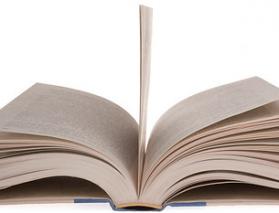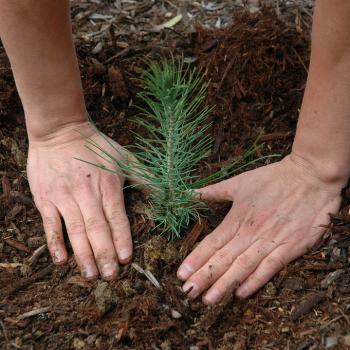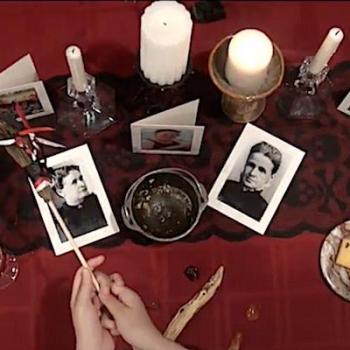What does an earth-based path offer when living with dying? When the inevitable challenges of life trip us up, is our faith strong enough to carry us through them?

My best friend died when she was 39. We knew it was coming. I flew from New York to Oregon several times after her breast cancer diagnosis. When the call came, “She may not last the week;” I flew again. Taking off, staring down at the colorful autumn hillsides, I thought about mortality. Each leaf, falling from the tree was dying, and yet it would nourish the tree it fell from. Contemplating the leaves gave me some comfort, but it didn’t fill the hole in my heart. At 30,000 feet I had found some emotional distance and philosophical perspective, but when I walked into her home and held her hand, all my perspective vanished.
A few years later, a family friend died suddenly. Without the preparation that aging or illness usually gives us, his family fumbled to cope. How could we help his granddaughter understand death when we were at a loss? Again, the philosophical perspective was inadequate. We struggled to find a way to communicate ideas we had formulated as adults. My “back to the earth” imagery seemed vague. How do you explain that at one moment Grandpa was fly fishing on the Rogue river and in the next his body was lifeless and floated downstream.
Death is inevitable. Terrifying. Painful.
It is no surprise that we often try to keep it at a distance.
Knowing that we become flower food can be comforting for some, but doesn’t make the loss easy to bear. How do we live intimately with death and loss? Losing a loved one may be the hardest thing you ever do, but it is something we can live with. The love between us makes it possible to travel through the loss. The pain of loss in death is related to the love between us and the one we have lost. Without love, there is no loss.
Mary Oliver, in her poem In Blackwater Woods, speaks of this love.
“to live in this world
you must be able
to do three things
to love what is mortal;
to hold it
against your bones knowing
your own life depends on it;
and, when the time comes to let it go,
to let it go”
Buddhist teachings suggest that instead of pushing suffering away we should embrace it. We also need breaks. The immediacy of death can, and will give way to the immediacy of birth and laughter and joy as well as contentment and many other divine “now” moments. But we cheat ourselves if we try to skip over our grief.
I like thinking of my death as a way to “fertilize” other life, but I also turn my attention to the way our lost loved ones have “fertilized” the world with their life. Every life changes the world. Every person makes a difference by being who they are, by singing their own song. Their memory, their works, the people who loved them: that is part of their afterlife. It is comforting to feel that you won’t completely disappear. At the fly fisherman’s memorial service I was comforted by the words of his son, describing his connection to everyone and everything else through the metaphor of an ocean wave… We are all connected in the way that the ocean is all one, and we are all distinctive and have unique influence in the way that one ocean wave exists separately.
Religious stories (and aren’t all the myths and folktales religious stories?) have a lot to say about death: how to cheat it, how to face it, how to live with it. The idea of Heaven, and the departed watching over their loved ones is a compelling one. Other stories include the Hindu idea of merging with Atman, or “godhood,” becoming one with the ALL from whence we came, and the Jewish idea that we return to the dust of the earth. I am a Pagan, so I look to the stories of earth-based spirituality. The stories tell of the Summerland, a heaven-like place where our ancestors go, and share the idea of our oneness with the earth. Personally I very much like the idea of becoming one with my divinity, for that is how I view the earth. The planet is both sacred and divine. The broccoli I had for dinner is a part of me, I have recycled dinosaur cells in me, larger than that, I have stardust in me.
Unitarian Universalist Pagans have a robust set of tools to carry with us as we face the loss of a loved one. Most important is our comfort with talking about death. Our annual celebration of ancestors (often around the October 31st “Samhain” season) helps us. Our sense that the ancestors are still with us in myriad forms comforts us.
Pagan musician Charlie Murphy sings:
“It’s the blood of the ancients
that runs through our veins
and the forms pass
but the circle of life remains”
Unitarian Universalist willingness to center our rituals in lived experience, rather than tradition and scripture, allows us to create memorial services with flexibility, and the ability to center the life of our lost loved one and needs of their grieving friends and family. The typical UU memorial service is a celebration of the deceased’s life and an invitation to love more deeply and well.
Rituals like the Jewish kaddish, or a memorial service, or an altar to the ancestors where you go can go to meditate and to remember, are a part of living with death. These rituals guide us through wonder, create community, and help us to gently contain and focus our grief. The rituals bring the community together. They give us something to do that asks us to face and know death, and to move through our grief together.
My mother died last week after a long exhausting illness. She told me, days before her death, “I’m not afraid, there’s nothing to be afraid about. I’m just taking a short walk to the next thing.” I wasn’t flying across the country for this visit, I stayed right here on the ground. No detached perspective this time. Just an embrace of tears and laughter: pain, sorrow, and the healing from being with loving friends and family. I am grateful for the deep well of earth-based poetry and song that guides me, comforts me, and affirms my experience. I am grateful for the rituals and the blessings of community that come to me through my UU faith. Memories lighten grief.
By the time death comes for us, it may be a blessing to lay down the burden of daily struggle during a long illness. Or, death may come suddenly, without the grace of warning and time for preparation. However it comes, however we greet it, death WILL come. Yet, when we accept death as a part of the natural cycle, we can allow that awareness to guide our priorities in every moment, and we can live fully. May every moment of your life be as perfect as the moment of death, the moment of birth, the moment of loss and surrender. May every moment be filled with wonder and filled with love.
Amy Beltaine is Sole proprietor of Listen to HeartSong: Supporting you to create and navigate social and spiritual transformation. Inviting you to conspire with the spirit of life to do the work of love. Reverend Amy is endlessly fascinated and excited by the mystical experience of the sacred in nature and relationships, per describes perself as a… woman, teacher, seeker, and a letter in “lgbtq”.

















